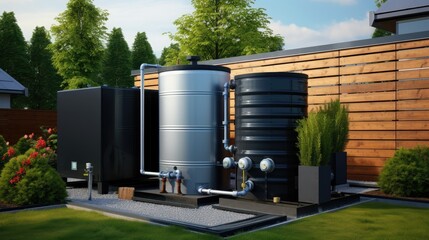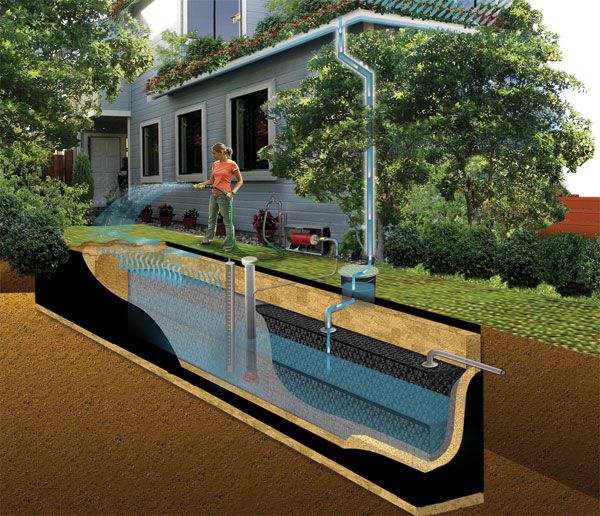
Water scarcity is a pressing issue in India, exacerbated by rapid urbanization, industrial growth, and climate change. As the demand for water continues to rise, adopting eco-friendly water storage solutions becomes crucial for promoting sustainable living practices. Here, we explore innovative and environmentally conscious water storage options that not only conserve this precious resource but also minimize environmental impact.
Rainwater Harvesting Systems:
Rainwater harvesting is a time-tested method that captures rainwater from rooftops or other surfaces and stores it for later use. In India, where monsoon rains are plentiful yet unevenly distributed, harvesting rainwater offers a sustainable solution to water scarcity. Systems range from simple setups like rooftop tanks to more complex underground reservoirs equipped with filtration systems. By collecting rainwater, households and communities can reduce reliance on groundwater and municipal water sources, easing pressure on local water supplies.
Ferrocement Tanks:
Ferrocement tanks are gaining popularity for their durability and eco-friendliness. These tanks are constructed using a framework of chicken wire mesh and cement plaster, making them lightweight yet strong enough to withstand varying climatic conditions. Unlike traditional concrete tanks, ferrocement tanks require less cement, reducing their carbon footprint during construction. Their smooth interiors also minimize algae growth and bacterial contamination, ensuring stored water remains clean and safe for consumption.
Modular Plastic Tanks:
Modular plastic tanks provide a flexible and scalable solution for water storage in both urban and rural settings. Made from high-density polyethylene (HDPE) or polypropylene (PP), these tanks are lightweight, corrosion-resistant, and easy to install. Their modular design allows for customization based on water storage needs, making them suitable for individual households as well as large-scale community projects. Additionally, plastic tanks are recyclable at the end of their lifespan, promoting a circular economy approach to water storage infrastructure.

Underground Storage Systems:
For urban areas where space is limited, underground storage systems offer a practical solution to store harvested rainwater or treated wastewater. These systems typically consist of tanks or cisterns buried underground, reducing surface area use while protecting stored water from temperature fluctuations and sunlight exposure. Using underground storage helps maintain water quality by preventing algae growth and minimizing evaporation losses, thereby maximizing the efficiency of water conservation efforts.
Solar-Powered Water Purification Units:
In remote or off-grid locations, solar-powered water purification units combined with storage tanks provide a sustainable way to access clean drinking water. These units use solar energy to power purification processes such as reverse osmosis or UV disinfection, ensuring that harvested rainwater or groundwater meets safe drinking water standards. By integrating renewable energy sources, such systems reduce dependence on fossil fuels and contribute to overall environmental sustainability.
Community-Based Water Storage Projects:
Community-based initiatives play a crucial role in promoting sustainable water management practices across India. Projects that involve local communities in planning, implementing, and maintaining water storage systems foster a sense of ownership and responsibility towards water resources. Whether through constructing communal rainwater harvesting structures or managing shared water purification facilities, these projects empower communities to conserve water collectively while building resilience against water scarcity.
Conclusion:
Embracing eco-friendly water storage solutions is not just a necessity but a responsibility towards ensuring water security and environmental sustainability in India. From rainwater harvesting systems and ferrocement tanks to solar-powered purification units and community-based initiatives, there are diverse options available to meet varying water storage needs while minimizing ecological impact. By integrating these solutions into everyday practices, individuals, communities, and industries can contribute towards a greener, more water-secure future for generations to come.


